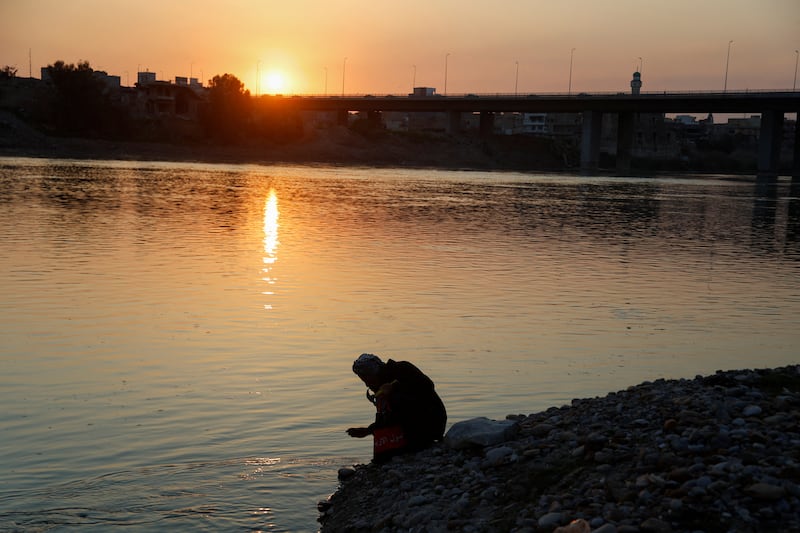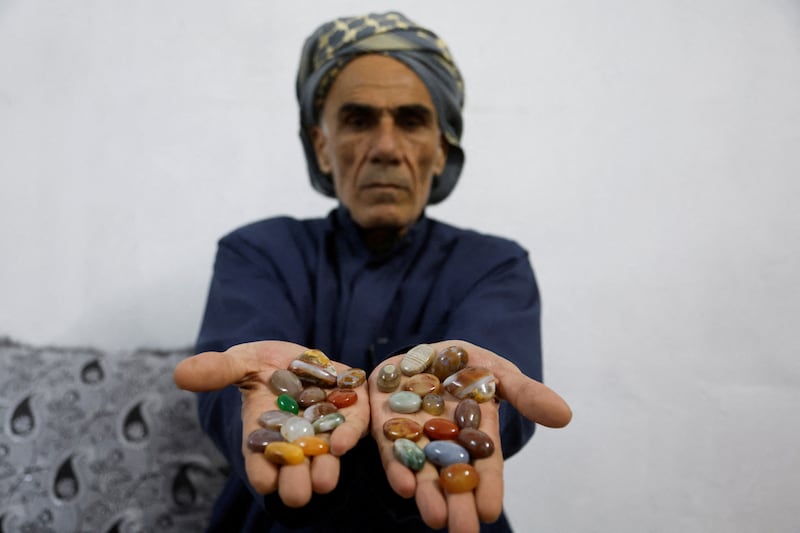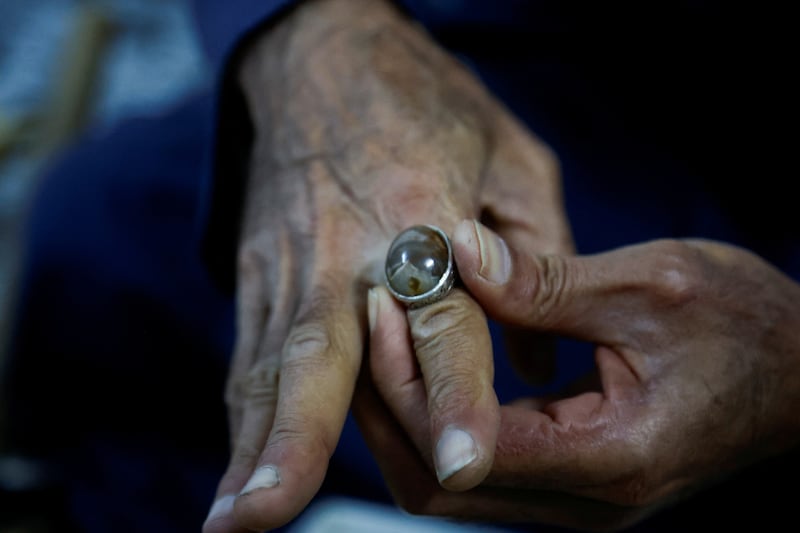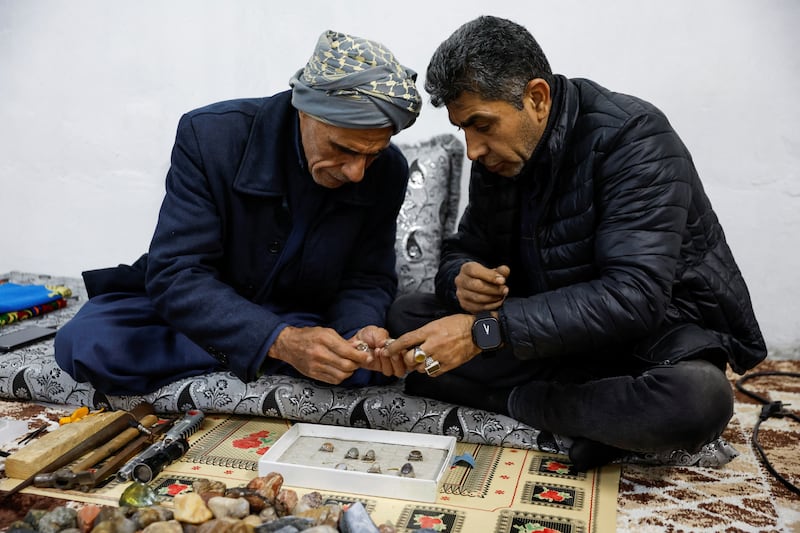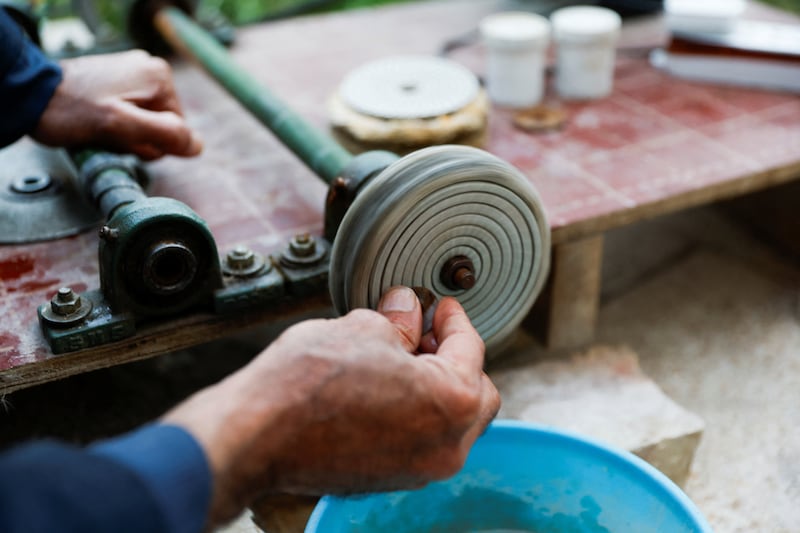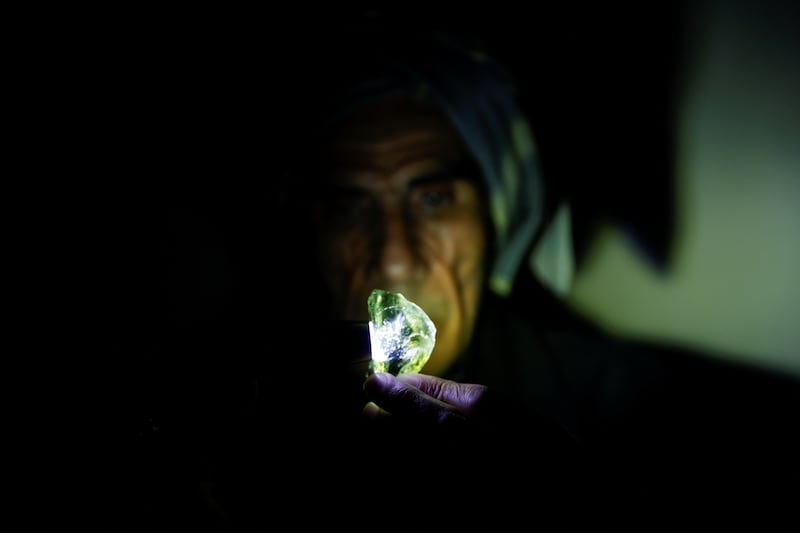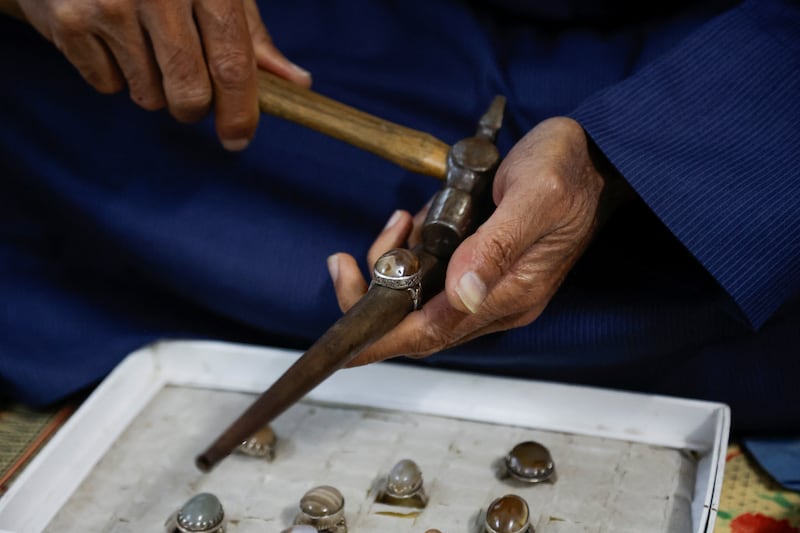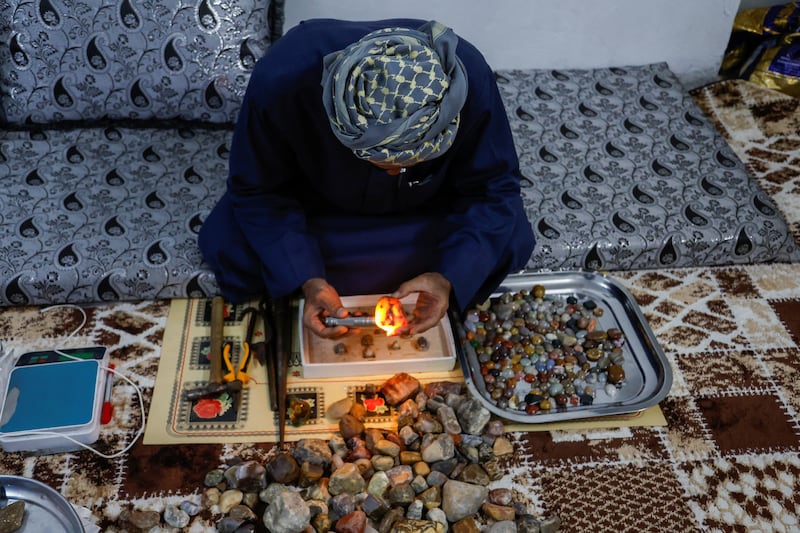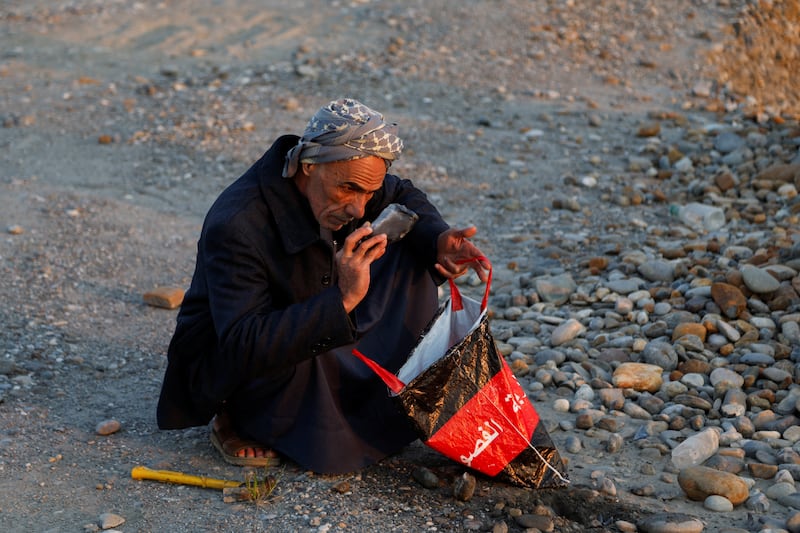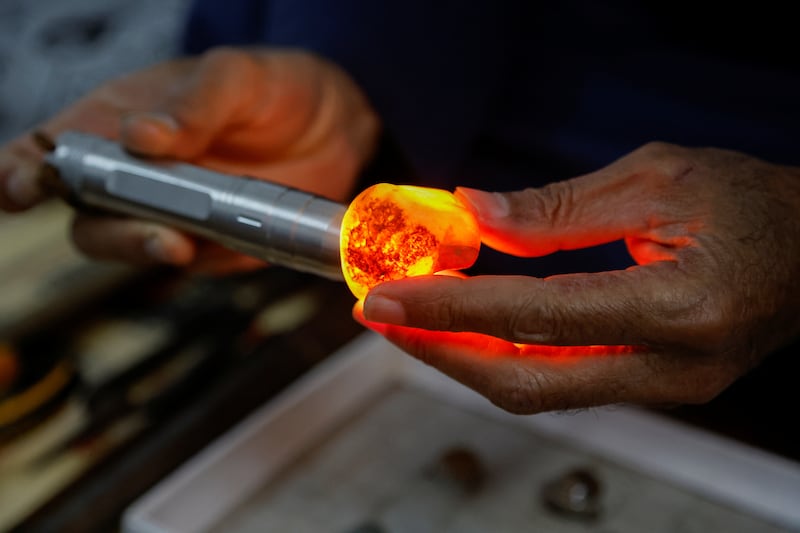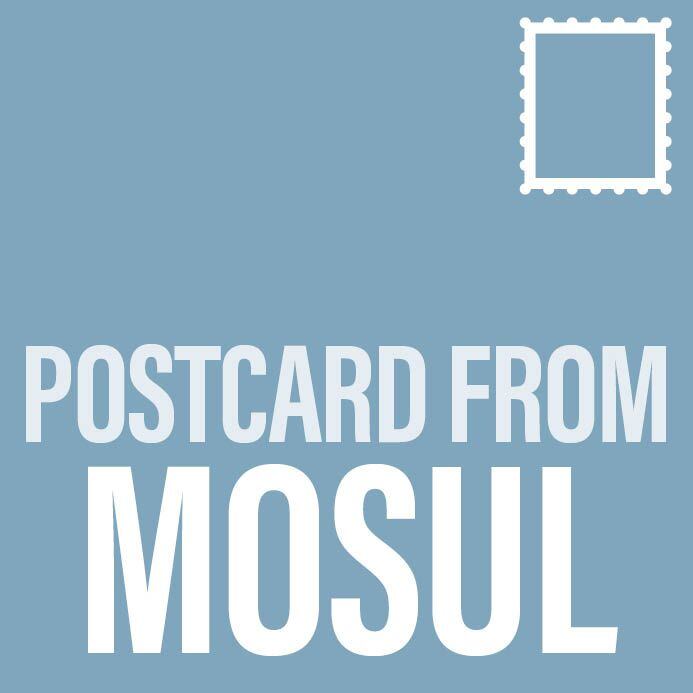
What began as a hobby soon evolved into a fully fledged business venture for retired Iraqi army officer Hashim Suaan.
Along the serene banks of the Tigris River which divides the northern city of Mosul, and in the sprawling remote areas, Mr Suaan has embarked on a remarkable journey of discovery with semi-precious stones.
“It all started to kill the time and then turned into an additional source of living,” Mr Suaan, 58, tells The National. “It is like a whole world or an extremely vast ocean. Very enjoyable,” he says.
After decades of service in the military, he found himself yearning for a purpose that would fuel his passion for exploration and adventure.
He started watching videos on YouTube and social media published by gem hunters, craftsmen, researchers, and geologists, and developed friendships with some of them, he says.
“I learned most from the Indonesians and Brazilians on how they cut and polish stones as well as the varieties of stones,” he says. “Afterwards, I turned the ideas from theoretical to practical,” he adds.
Armed with no more than a keen eye and an adventurous spirit, he strolls the riverbanks for hours and sometimes goes on trips to remote areas, searching for stones in piles of pebbles and rocks.
With an amateur kit consisting of an iron hammer and a small pickaxe, he unearths treasures such as agate, jade, and topaz stones.
Mr Suaan uses a small torch to examine the clarity and the colour of the stones as he doesn’t own any sophisticated laboratory equipment to determine the stone type.
At the beginning, he couldn’t find buyers for the raw stones among jewellers in Mosul, who would offer him low prices.
Then he decided to cut and polish the stones and set them on silver rings using modest machines. Recently, he has ordered a new line of modern machinery from China.
“Looking at the stone with the eye penetrates into the soul, heart and mind, and you feel something unique, as if in another world,” he says.
“It gives energy, vitality and perseverance,” he adds.
Prices start from $7 to $10 and can reach several hundred dollars for each stone.
When ISIS swept through northern and western Iraq in mid-2014, Mr Suaan fled his hometown of Gower, outside Mosul, joining thousands of families who were displaced for years.
He then joined the US-backed military operations to drive the militants out from the areas of Iraq that they occupied.
“We fought bloody battles from Fallujah and Ramadi [west of Baghdad] until liberating Mosul in late 2017,” he recalls. He retired in 2018.
Mr Suaan’s venture is more than just a means of making a living; it's a testament to the resilience and resourcefulness of Mosul's residents in the face of adversity.
The months-long battles left much of Mosul and the surrounding areas in ruins. Since then, its residents have been struggling to get back on their feet.
“Today, Mosul is like paradise, with the blessings of God,” he says. “This security and safety would not come without sacrifices,” he adds.
His fondness for gemstones is deeply rooted in Iraqi tradition and Islamic cultures mainly found among Shiites in central and southern Iraq, where the majority of Mr Suaan's clients come from.
Buying a ring with a stone, usually from revered Shiite shrine cities, is something of a ritual, with some costing several thousands of dollars.
Many pious Muslims view them as more than just beautiful stones or a work of art. They believe they have special powers to bring success, luck, money, or to ward off evil and ensure safety.
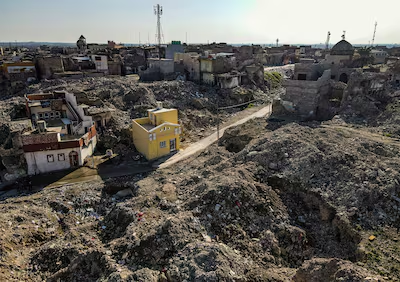
Mr Suaan believes in some of these powers.
“When I started dealing with and wearing stones, Allah opened doors of livelihood for me, and changed my psychological state, and I found mental stability,” he says.
He used to get frustrated easily, he says. “But now this irritability is gone, and I feel mental peace.”
For him, the stone is “a delight to the eyes and a peace of mind”.
